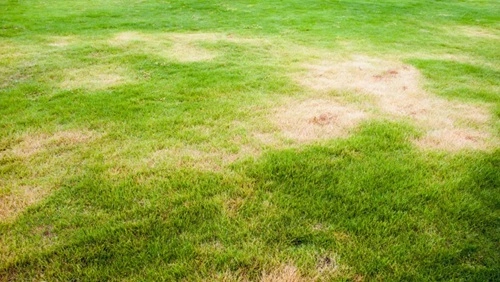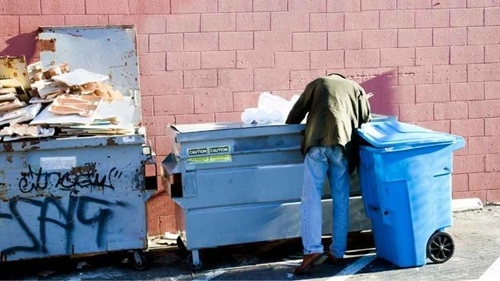Burning grass may seem like a simple way to clear land, manage weeds, or improve pastureland. However, in the United States, open burning of grass is heavily regulated, and doing so without proper authorization can lead to fines, criminal liability, and environmental penalties. Even if you own the land, burning grass is not automatically legal — state and local regulations play a crucial role in determining whether the act is lawful.
Here’s a detailed legal breakdown from a U.S.-based lawyer and law content creator.

Federal Law: Environmental Considerations
At the federal level, the Clean Air Act (CAA), enforced by the Environmental Protection Agency (EPA), regulates emissions from open burning. Grass fires release particulate matter, carbon monoxide, and volatile organic compounds (VOCs), which contribute to air pollution.
While the CAA does not explicitly ban grass burning, emissions that affect air quality in neighboring areas can be illegal, and federal agencies can get involved if:
- The burn occurs near protected lands or national parks,
- Endangered species or habitats could be affected, or
- Smoke crosses state lines, triggering interstate air pollution concerns.
In practice, most legal issues arise under state and local law, with federal law stepping in only for larger-scale environmental impacts.
State and Local Laws: The Main Restrictions
Nearly every U.S. state and county regulates open burning — including grass fires — to prevent wildfires and protect public health. Local fire departments, environmental agencies, and air-quality districts oversee these rules.
1. Permits Are Usually Required
In most states, you cannot burn grass without a permit, even on your own property.
- California: Requires a burn permit from the local Air Quality Management District for any agricultural or yard burning.
- Texas: The Texas Commission on Environmental Quality (TCEQ) mandates permits for controlled grass burning and restricts burn days based on weather and wind conditions.
- Florida: Open burning is regulated by Rule 62-256, which limits agricultural burns and requires state approval.
Violating these rules can result in civil fines, criminal citations, and liability for fire suppression costs if the fire spreads.
2. Seasonal and Weather Restrictions
Most states restrict grass burning during dry seasons or high-wind conditions, as these factors significantly increase wildfire risk. In areas prone to wildfires, burn bans may be in effect for months at a time.
3. Neighbor and Public Safety Considerations
Burning grass near roads, homes, or other properties can violate public safety ordinances, especially if smoke reduces visibility or poses a health hazard. Law enforcement can issue nuisance citations or stop work orders.
Liability and Risks of Illegal Grass Burning
Even if you own the land, burning grass illegally can create serious legal and financial liability:
- Fire damage: If the fire spreads to neighboring properties, you may be civilly liable for damages.
- Health issues: Smoke affecting neighbors or passersby can result in personal injury claims.
- Fines and criminal charges: Many states classify unauthorized burning as a misdemeanor, with fines ranging from $100 to $5,000 or more.
Legal and Safe Alternatives to Burning Grass
If your goal is to clear land or improve soil health, there are legal alternatives:
- Mowing or mechanical clearing: Safe, inexpensive, and does not create smoke hazards.
- Composting: Grass clippings and weeds can enrich soil legally.
- Certified controlled burns: In agricultural areas, you can hire professionals who follow state-approved burn plans.
- Herbicide or manual removal: In sensitive areas, chemical or manual clearing may be safer and fully legal.
FAQs About Burning Grass in the U.S.
Q. Is it illegal to burn grass on my property?
Yes, in most states, you need a permit to burn grass legally. Unpermitted burns can result in fines and criminal charges.
Q. Can I burn grass without a permit in rural areas?
Even in rural areas, most states require a permit or adherence to state fire codes. Always check with your local fire department or environmental agency.
Q. What are the penalties for illegal grass burning?
Penalties vary but can include civil fines ($100–$5,000), misdemeanor charges, and liability for damages if the fire spreads.
Q. Are there seasonal restrictions?
Yes. States often prohibit grass burning during drought conditions, high winds, or wildfire season. Check local burn bans before planning a fire.
Q. How can I legally burn grass?
Obtain a burn permit from your local fire department or air-quality district and follow state-approved safety guidelines. Some areas require professional supervision for controlled burns.
Conclusion
Burning grass is not automatically legal, even on your own property. Federal law primarily addresses environmental impact, while state and local laws regulate permits, safety, and public health. Violating these rules can result in fines, criminal charges, and liability for damages.
If you need to clear land or manage vegetation, always pursue legal alternatives or approved controlled burns. By following the law, you protect yourself, your neighbors, and the environment from unnecessary risk.

